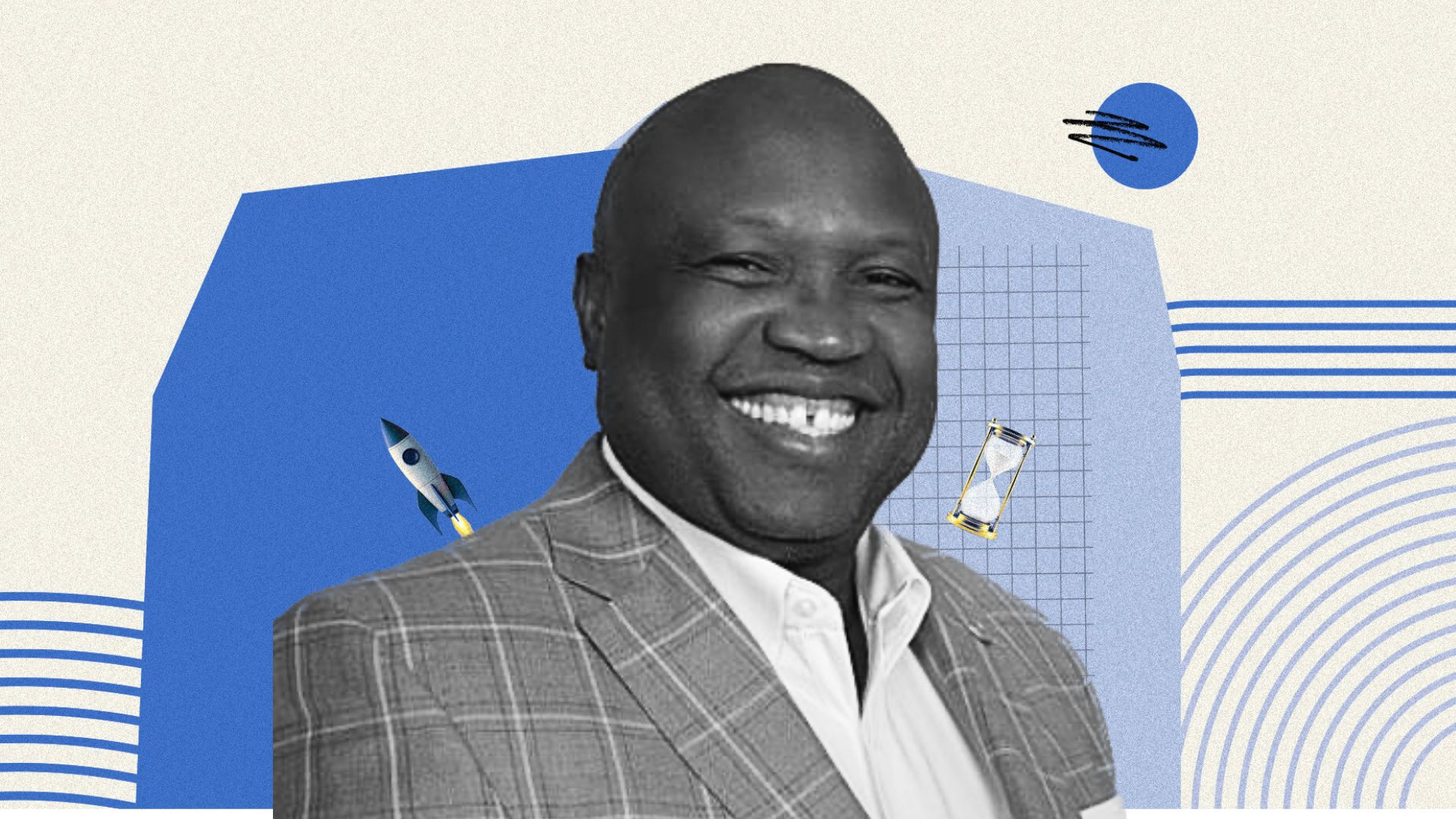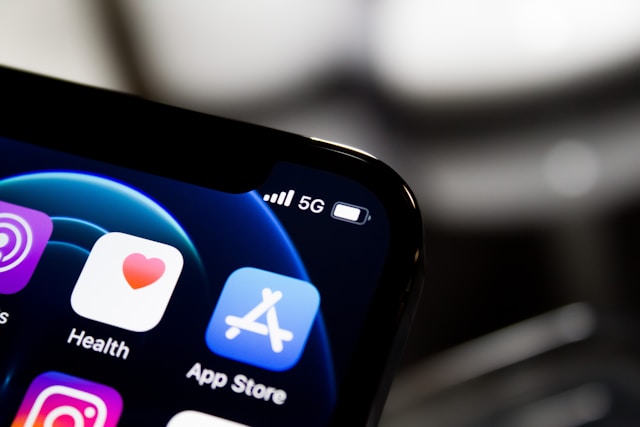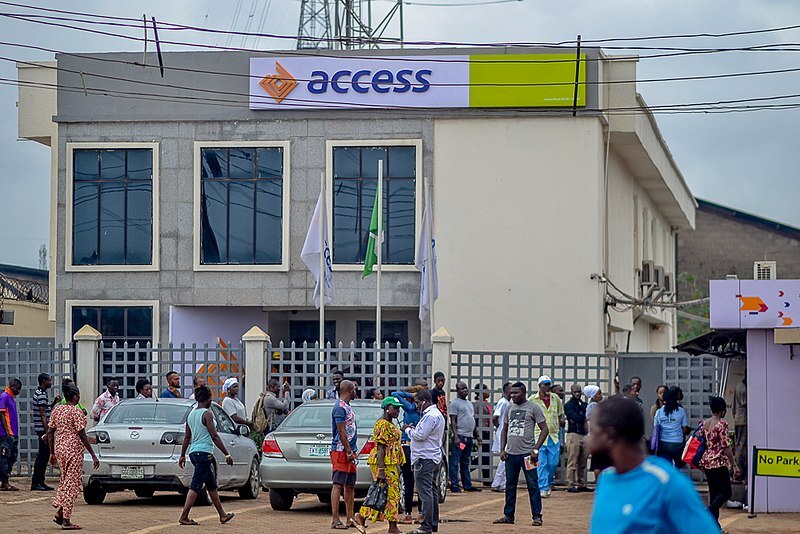Joseph Olowe can tell you the exact moment everything changed. His friend Jim, a software engineer, 42 years old, stepped on something sharp in his office, leaving a small puncture. The wound wouldn’t heal.
One thing led to another, the wound became infected, and the infection spread, from bone infection to sepsis. His leg was amputated. Jim didn’t know he had an autoimmune disease affecting his pancreas, which delayed his healing processes. By the time anyone figured it out, it was too late. Jim fell into depression. He took his own life.
The problem with Jim wasn’t that he couldn’t be rehabilitated after the amputation. The problem was that nobody caught the autoimmune disease destroying his pancreas before a simple puncture wound spiraled into a life-threatening infection. By the time doctors figured it out, Jim had lost his leg and his will to live.
“From one day to the next, things can change,” Olowe says. “That’s when I decided to do something about it.”
For 30 years, Olowe had been a physiotherapist. He’d built his own practice and seen hundreds of thousands of patients. They all came to him the same way, broken. Stage four cancers that started as lumps, heart attacks in people who seemed fine yesterday. By the time they walked into his clinic, the damage was done.
“We’ve always approached healthcare from the sick care model,” Olowe explains. “We wait till everything breaks down before we do something.”
Jim’s death in 2019 made Olowe realise he was tired of helping people recover from preventable disasters. What if he could catch the autoimmune disease before the wound wouldn’t heal? The high blood pressure before the stroke? The early-stage cancer before it reached stage four?
That’s how DoktorConnect started.
Day 1: A $25,000 test nobody could afford
Olowe’s first idea was simple: create a comprehensive wellness test that would tell people exactly what was happening in their bodies before things went wrong. He started in the US, where he’d been practicing. The problem was immediate. Those basic tests cost $20,000 to $25,000. “How many people can afford that?” Olowe asked himself.
He found technology that brought the cost down to around $1,000. Then COVID hit.
“COVID messed everything up,” Olowe recalls. He decided to move the entire operation to Nigeria. Then he asked himself the same question again: “How many people in Nigeria can afford $1,000?”
They went back to the drawing board. By the time DoktorConnect officially launched in February 2021, they’d brought the cost down to $70-$80 per person. It was still too expensive for everyday Nigerians, but low enough to sell to corporations as pre-employment screening and annual wellness checks for employees.
DoktorConnect works with an aggregator model, they don’t own labs or clinics. They partner with existing medical infrastructure to deliver the testing, then aggregate all results into one comprehensive report on their platform.
This is why Olowe could scale so quickly and why the price point (₦4,000-5,000 for consumers, ₦100K-150K for corporate packages) works; they’re not building physical infrastructure, they’re layering technology on top of existing medical capacity.
The pitch was straightforward: test your employees before they get sick. Know what’s happening with your workforce. Prevent the catastrophes before they happen.
The funding was even simpler: Olowe’s own money. He emptied his 401k retirement account. Then he emptied his wife’s.
“My wife did not really support it at the beginning,” Olowe admits. “We’d been burnt in Nigeria a few times. I promised her I wasn’t going to do any business in Nigeria. But I started again.”
Eventually, she came around. “She realised Nigeria needed what we were doing more than people in the US.”
In 2021, about two years after he started building, Olowe got his first external checks: $90,000 from a younger brother who believed in the mission, $100,000 from a friend, $50,000 from another friend. This influx of funding kept the company alive.
But getting customers was harder.
Day 500: Selling prevention in a country that waits for disaster
Nigerian companies had a simple question, “Why should we pay for this?”
“Health-seeking behavior in Nigeria is not focused on prevention,” Olowe explains. “We only deal with it when somebody is sick.”
So Olowe started telling stories. Real ones.
There was the employee who kept complaining of massive headaches. The company gave her paracetamol. The headache would go away, come back, go away. She finally went to England for a holiday and got a CT scan. It was a brain issue, she passed away.
“That company said, ‘Wow, why didn’t we catch that?’ That changed their philosophy,” Olowe says.
Another big accounting firm ignored DoktorConnect’s pitch completely. Then one day, they came looking for Olowe, rushing. One of their employees had slept and didn’t wake up.
“They said, ‘Let’s do this, let’s do that.’ So we began to work with them.’
These tragedies became DoktorConnect’s sales ammunition. But even with compelling stories, the business struggled. In 2022, they were bleeding money. Not because they had no customers, but because diesel prices in Nigeria went from ₦300 per liter to ₦1,200 per liter almost overnight.
“We blew our budget out. We had to add almost 50% more to the budget because of diesel,” Olowe says. “That was a panic moment for me. I was thinking, ‘Am I sure people want this?’”
There were a lot of late nights, self-doubt, moments when he’d wake up wondering if he should have just stayed a physiotherapist, seeing patients, making good money.
“There are moments you don’t even know how you’re going to make payroll,” he says. “But you have to wake up the next day because a lot of people believe in the vision.”
In late 2022, DoktorConnect got a breakthrough: a massive contract with a state government. That gave them the boost they needed. By 2023, more businesses were coming in. But Olowe knew something was still missing.
He spent two years trying to convince insurance companies and HMOs to work with DoktorConnect. The pitch was simple.
“If you catch somebody with high blood pressure, you buy them medication for ₦1,700 every month. That’s less than ₦24,000 a year. But if that person has a stroke, it costs you ₦5 million. Go figure.”
The HMOs didn’t bite. Not until August 2023, when DoktorConnect finally secured its first contract with one of Nigeria’s largest HMOs. It took two years of talking, explaining, and showing data. Two years to convince insurance companies that prevention was cheaper than treatment.
By then, Olowe had made another decision. In September 2023, he closed his physiotherapy practice in the US after 30 years. He’d been splitting time between the US business that sustained him and DoktorConnect in Nigeria. He couldn’t do both well.
“We wanted to build for Nigeria,” Olowe says. “It was easy for us to close the US business and double down on Nigeria.”
Day 1,000: The numbers you should know but don’t
Today, DoktorConnect has brought the cost of comprehensive wellness screening down to ₦4,000-₦5,000 for everyday Nigerians. They’ve built technology that can turn a pharmacy into a primary care center. They’ve created devices, a 6-in-1 health monitor that checks blood pressure, blood sugar, ECG, temperature, and oxygen levels, that connect via Bluetooth to an app and sync data in real-time to doctors.
“With this little machine, you can upload data in real-time to a doctor that can see you,” Olowe explains, “Someone could be in Abuja and upload their data to someone in Lagos.”
If you don’t have the device, DoktorConnect has an artificial intelligence tool that scans your face, measures your vitals, and gives you 17-18 health parameters—blood pressure, mental stress index, and more. The AI works by analysing facial blood flow through your phone’s camera. It’s called transdermal optical imaging, and it picks up subtle changes in light reflected from haemoglobin beneath your skin. In seconds, the software extracts health signals that would normally require physical devices to measure.
The platform now gives users automatic access to online doctors for a full year after signing up. No extra payment. No excuses about not affording a consultation.
But Olowe’s favorite question to ask people hasn’t changed.
“Do you know your dad’s phone number? Your bank account number? Your boyfriend’s birthday? Your sister’s phone number?” He doesn’t wait for answers. “You know all those numbers. But do you know your cholesterol number? Your blood pressure? Your blood sugar? Those are the numbers that are very important.”?
Last year, he was speaking to a group of 22-25 people. He asked how many had checked their blood pressure in the last six months. Two hands. In the last year? Three hands.
“Your blood pressure is the gauge to how your heart is working,” Olowe says. “It’s available everywhere. But people just don’t know that knowing your numbers is a way of preventing your body from getting sick.”
The cultural shift is happening, though. Slowly. Olowe sees it in the way Nigerians now talk about therapy, something that was taboo five years ago, is now almost fashionable. “If you don’t have a therapist right now, it’s like you’re left behind.”
Wellness is following the same path. “When we first started, people were like, ‘Why should I go find out what is going to kill me?’ But now it’s becoming, ‘I need to know what is going on in my body.’”
DoktorConnect’s goal is simple but massive: one household, one DoktorConnect health monitor. Olowe wants the platform in every Nigerian home, every office, every neighborhood pharmacy. He’s thinking about changing the company slogan to make it official.
“My goal is when I get into that neighborhood pharmacy, I’m able to provide a tool for everybody to check themselves and connect to a doctor right there, or do it in their own house and call the pharmacy to drop medication at their door,” he says.
The numbers back up his ambition. Nigeria has roughly 30,000 to 40,000 active doctors for a population of 250 million people. The math doesn’t work. If Nigerians wait to get sick before seeing a doctor, the system collapses under its own weight.
In the next three years, Olowe wants DoktorConnect to hit 5 million users. In eight years, he believes they’ll have 30-40% of Nigerian households using the platform.
It’s an audacious goal. But Olowe doesn’t seem worried about competition or market size. What keeps him up at night is different.
“Government stability,” he says. “Can somebody walk in right now and destroy all the tech infrastructure that’s been built? That’s number one. Number two is infrastructure. When we scale to 10 million users, will the Nigerian internet and telco be able to handle it? Those are the two things that keep me up.”
Jim died because nobody caught the problem early enough. A puncture wound became an amputation, which became a suicide. The cascade of failures that killed him at 42 is the cascade Olowe is trying to stop for millions of other Nigerians.
“We’re not replacing hospitals,” Olowe clarifies. “Hospitals still have their place. But if you want to quickly take care of malaria, a headache, a stomach ache, just hop on your phone, talk to your doctor, give them the data they need.”
When was the last time you walked into a bank to check your balance? Probably years ago. There’s an app for that now.
Olowe wants the same thing for healthcare. Not because it’s convenient. Because Nigeria’s healthcare system, 30,000 doctors for 250 million people, literally cannot survive any other way.
DoktorConnect isn’t just a wellness platform. It’s a bet that technology can do what human infrastructure can’t: scale prevention before tragedy becomes routine.
Four years in, the bet is working. The next 1,000 days will show if it can change a country.











